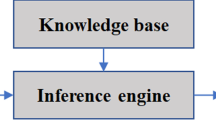Abstract
Fuzzy systems are currently being used in a wide field of industrial and scientific applications. Since the design and especially the optimization process of fuzzy systems can be very time consuming, it is convenient to have algorithms which construct and optimize them automatically. One popular approach is to combine fuzzy systems with learning techniques derived from neural networks. Such approaches are usually called neuro-fuzzy systems. In this paper we present our view of neuro-fuzzy systems and an implementation in the area of control theory: the NEFCON-Model. This model is able to learn and optimize the rule base of a Mamdani like fuzzy controller online by a reinforcement learning algorithm that uses a fuzzy error measure. Therefore, we also describe some methods to determine a fuzzy error measure for a dynamic system. In addition we present some implementations of the model and an application example. The presented implementations are available free of charge for non-commercial purposes.
Similar content being viewed by others
Explore related subjects
Discover the latest articles and news from researchers in related subjects, suggested using machine learning.Author information
Authors and Affiliations
Rights and permissions
About this article
Cite this article
Nürnberger, A., Nauck, D. & Kruse, R. Neuro-fuzzy control based on the NEFCON-model: recent developments. Soft Computing 2, 168–182 (1999). https://doi.org/10.1007/s005000050050
Issue Date:
DOI: https://doi.org/10.1007/s005000050050




